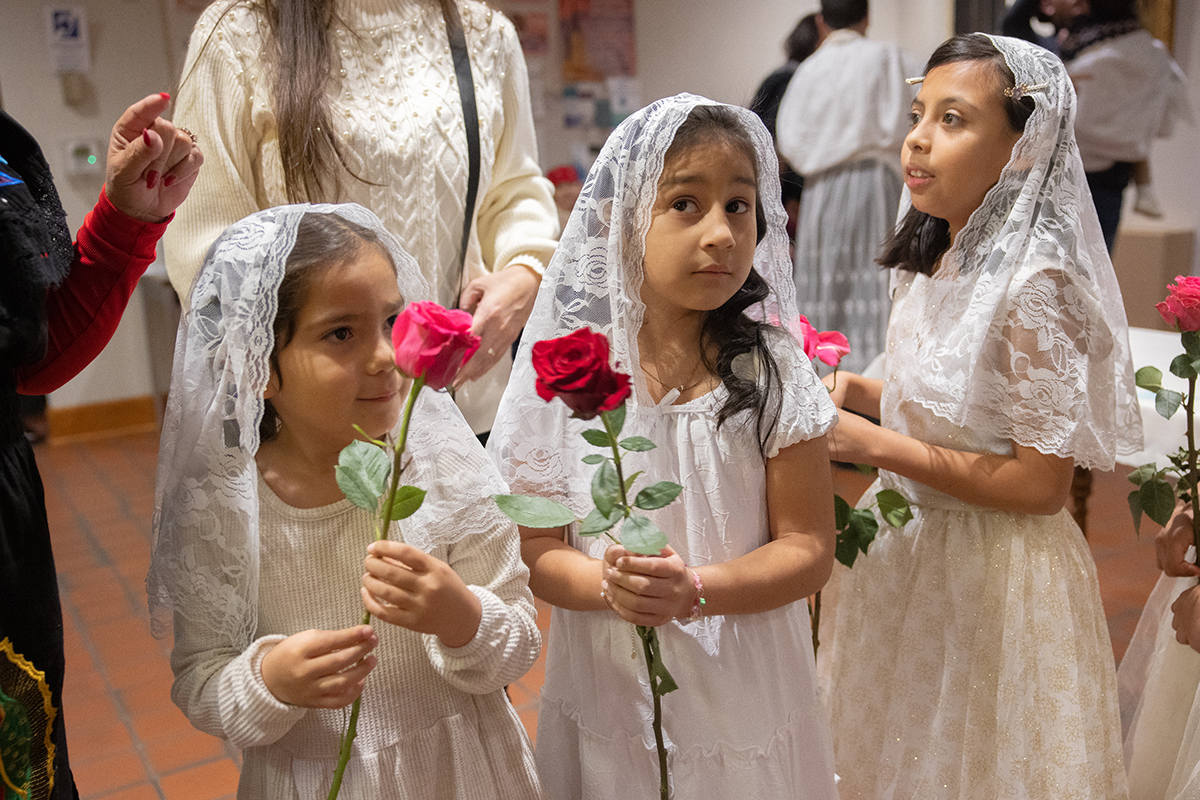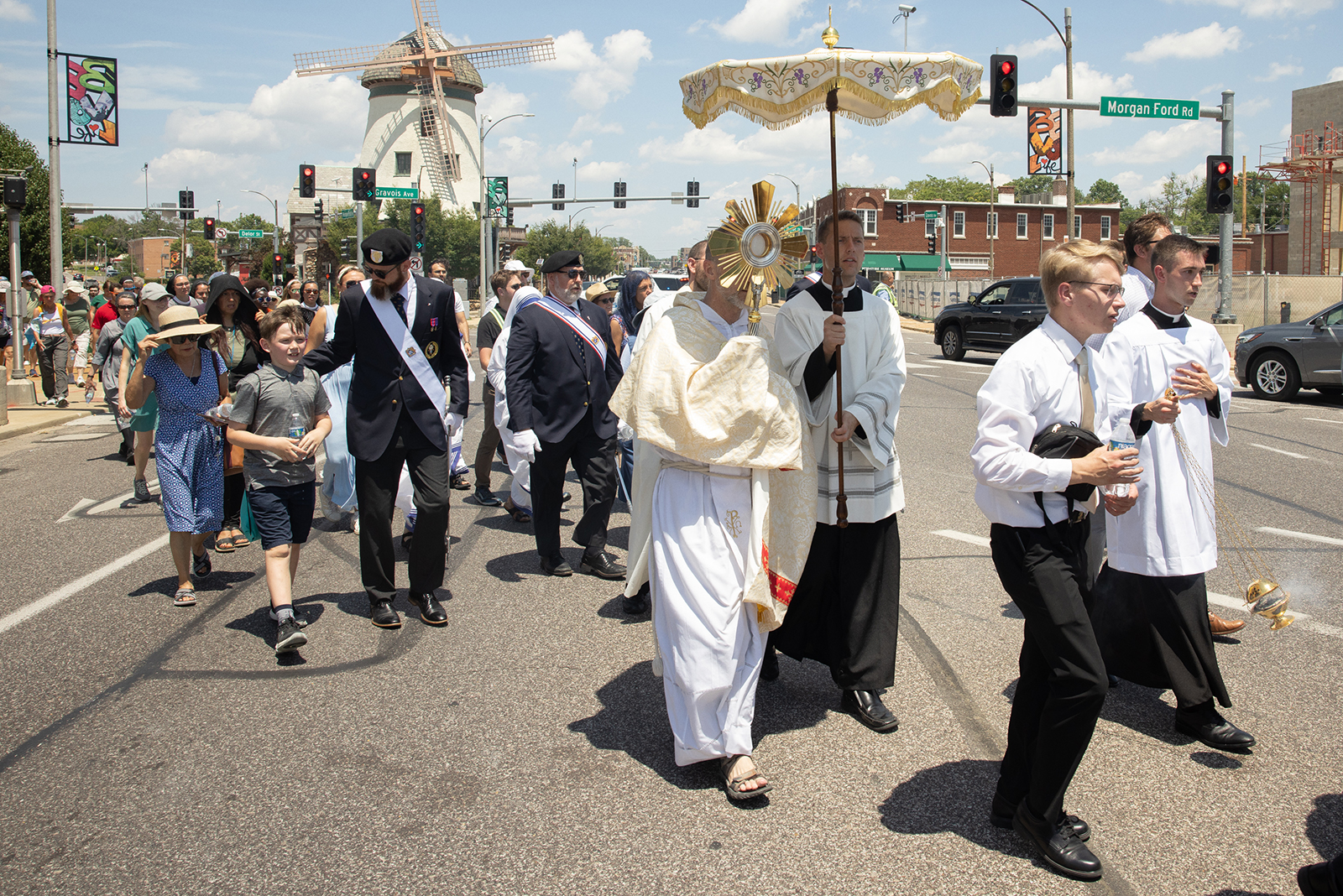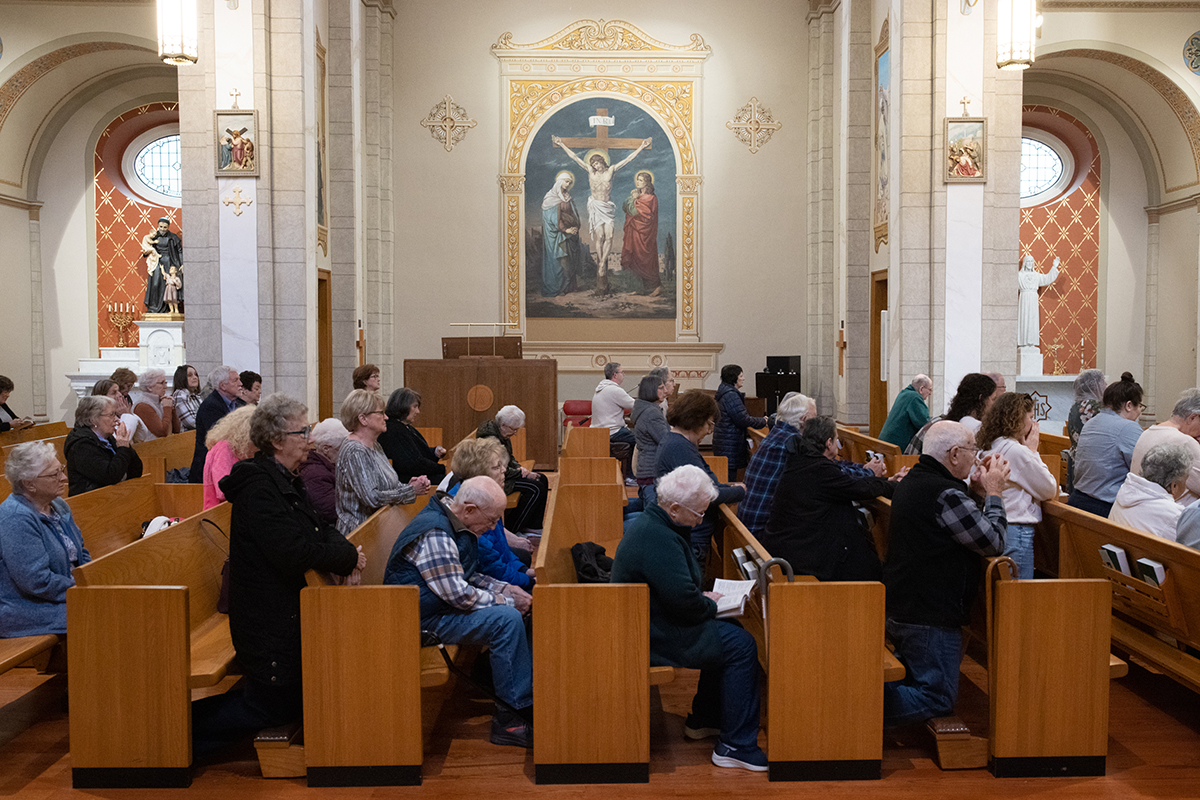Amendment 3 enshrines abortion in Missouri constitution
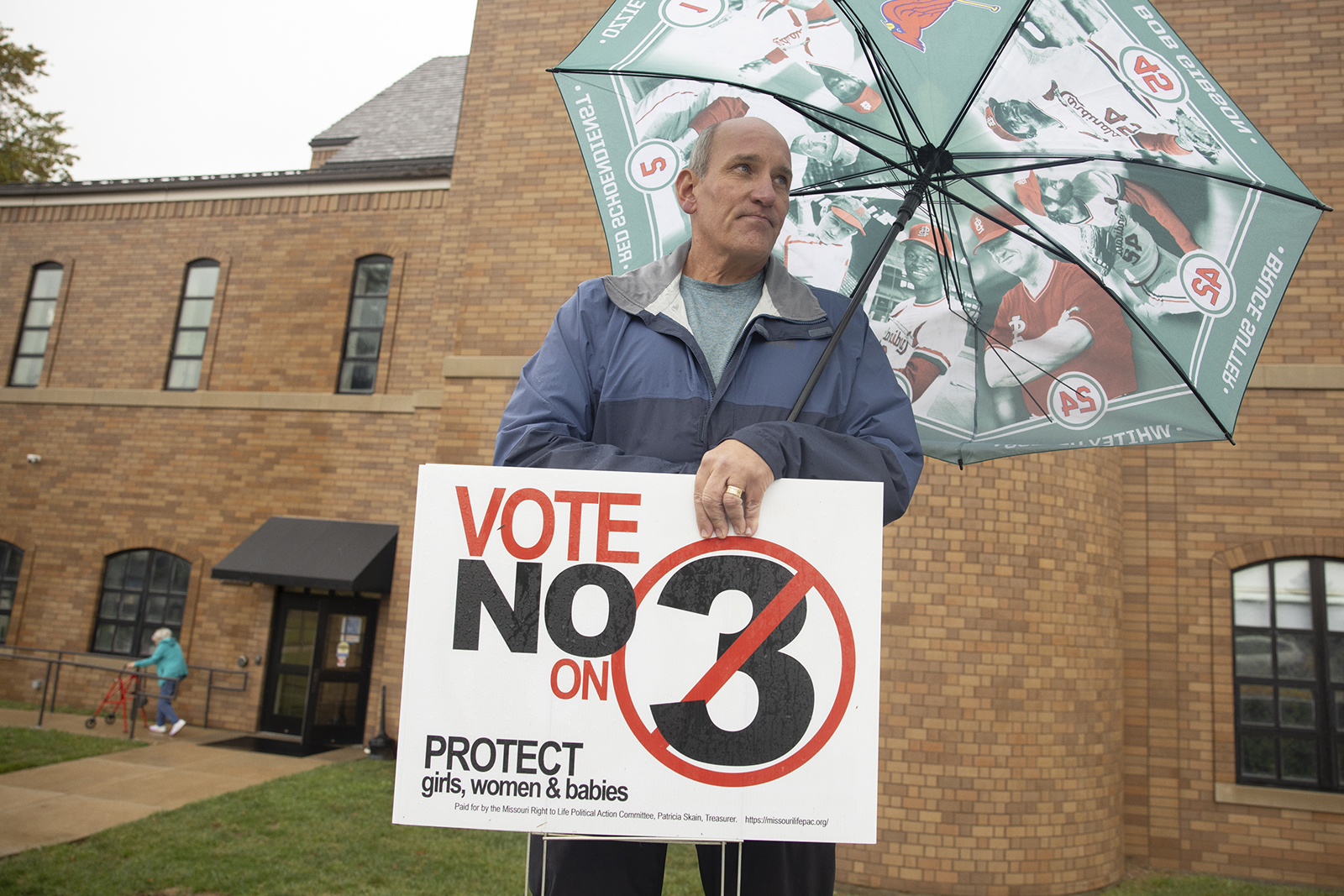
Bishops say the Church remains committed to upholding the dignity of all human life, walking with mothers and fathers facing difficult pregnancies
Missouri voters have elected to enshrine abortion in the state constitution.
Amendment 3, on the Nov. 5 general election ballot, allows for abortions until fetal viability (typically around 22-24 weeks of pregnancy), but also offers a broad exception for the “life and physical or mental health” of the pregnant person.
In addition to guaranteeing a right to abortion, the measure creates a right to make other reproductive decisions by declaring the government shall not “deny or infringe upon a person’s fundamental right to reproductive freedom … including but not limited to prenatal care, childbirth, postpartum care, birth control, abortion care, miscarriage care and respectful birthing conditions.”
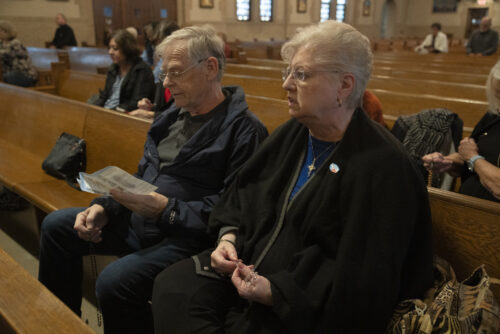
Leslie and Bonnie Hoeckelman, parishioners at Assumption of the Blessed Virgin Mary in O’Fallon, prayed during a prayer gathering for the defeat of Missouri’s Amendment 3 on Nov. 5 at the chapel at Assumption Parish. Amendment 3 passed with 51.7% of the vote.
The measure passed with 51.7% of votes in support and 48.2% opposed. The constitutional amendment will go into effect in 30 days (Dec. 5), however abortion won’t immediately become accessible across the state. Anticipated legal challenges are expected to overturn the state’s current abortion restrictions over time. Planned Parenthood and the American Civil Liberties Union (ACLU) announced on Nov. 6 a lawsuit to restore abortion access.
The Missouri Catholic Conference, the public policy arm of the state’s bishops, said that while the result was disappointing, the Church remains committed to advocating for pro-life policies and walking with mothers and fathers facing unexpected and difficult pregnancies. The MCC also called for prayers and work to recognize the gift of every human life.
“We are saddened that Missouri voters chose not to safeguard vulnerable women and children by voting for Amendment 3,” the statement said. “The Catholic Church in Missouri will continue to advocate for policies that uphold the dignity of all human life, protect the vulnerable and provide support for those in need.
“We reaffirm our commitment to walking with mothers and fathers facing unforeseen pregnancies, along with parents facing hardship in their pregnancies,” the statement continued. “For those women and men who have been wounded by abortion, the Church will continue to provide true hope and healing.”
Archdiocesan Respect Life Apostolate director Mary Varni said the RLA remains committed to supporting a culture of life, a mission it has been living for more than 50 years, when the apostolate was founded within weeks of the Roe v. Wade decision.

“Building a culture of life isn’t just about what happens in public policy, as important as that work is,” Varni said. “It’s also the heart-changing, life-saving work of championing the humanity of preborn children, walking with pregnant and parenting mothers, healing those wounded by abortion and educating the next generation on the dignity and beauty of all human life from conception to natural death. That’s really at the heart of the Gospel of life, Jesus’ message.”
Thomas More Society attorneys challenged Amendment 3 this fall before the Missouri Supreme Court, arguing that the campaign behind the measure had violated state law during the ballot initiative’s petition phase because it didn’t disclose the effects on other laws or limit the proposed amendment’s effect to one subject.
“Missourians have been tragically deceived by a dazzling misinformation campaign funded by out-of-state millionaires and other mega-corporations that will profit from giving abortions and gender ‘care’ to Missouri women and children,” Thomas More Society senior counsel Mary Catherine Martin said. “The Thomas More Society will not abandon Missouri in this post-Amendment 3 world. We stand ready to help defend the rights of Missouri’s parents, women, children and babies against the assaults that are planned by the proponents of Amendment 3.”
Missouri Stands With Women, the campaign opposing Amendment 3, said that the work to protect the safety of women and dignity of life will continue despite the outcome of the vote.
“Life supporters will not sit back and watch as Big Abortion works to dismantle all the health and safety protections put in place to protect women and babies,” spokeswoman Stephanie Bell said. “We will continue to fight and ultimately be victorious against the forces who see no value in life.”
Other abortion-related measures
Abortion-related measures were on ballots in 10 U.S. states Nov. 5. Voters in seven states passed amendments to allow abortion, while three upheld current bans. Here are the results:
Florida: Failed
The ballot measure, which earned less than 60% of the votes required to pass, would have amended the state constitution to guarantee abortion rights. Florida currently bans abortions after the sixth week of pregnancy, with some exceptions.
Nebraska: Failed
Nebraska voters faced two opposing ballot measures. One that would add to the state constitution the right to access abortions until fetal viability failed. The other passed, enshrining the state’s current 12-week ban, with exceptions for rape, incest and the life of the mother.
South Dakota: Failed
The ballot measure would have amended the state constitution to guarantee abortion rights. Abortion is currently banned in South Dakota, with few exceptions.
Arizona: Passed
Amends the state constitution to guarantee abortion rights up to fetal viability. The state currently bans abortions after the 15th week of pregnancy.
Missouri: Passed
The ballot measure amends the state constitution to guarantee a “right to reproductive freedom,” allowing abortion up to fetal viability, but with a broad exception for the “life and physical or mental health” of the pregnant person. Missouri currently bans abortion in most cases.
Nevada: Passed
Amends the state constitution to guarantee abortion rights. State law currently allows abortions up to 24 weeks. Voters would need to approve the measure twice, this year and again in 2026, to amend the constitution.
Montana: Passed
Amends the state constitution to guarantee abortion rights. The amendment upholds current law in Montana, where abortion remains legal.
Colorado: Passed
The ballot measure, which required at least 55% of the vote to pass, amends the state constitution to guarantee abortion rights. The amendment upholds current law in Colorado, where abortion remains legal.
New York: Passed
Amends the Equal Protection Clause of the state’s constitution to enshrine access to abortion and guarantee individuals’ autonomy over reproductive health care. Abortion is legal in New York.
Maryland: Passed
Amends the state constitution to guarantee a “right to reproductive freedom,” including the ability to continue or end a pregnancy. Abortion is legal in Maryland.

